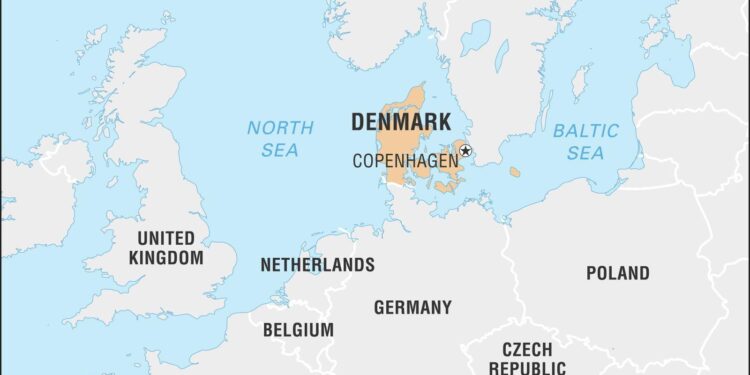Denmark has issued a stern warning to the European Union against pausing or scaling back its ambitious green transition efforts, emphasizing the critical importance of sustained climate action. As the EU grapples with economic uncertainties and energy challenges, Danish officials underscore that halting progress could undermine long-term sustainability goals and jeopardize the bloc’s leadership in global climate policy. The cautionary stance comes amid growing debates within member states about balancing environmental priorities with immediate economic concerns.
Denmark Urges EU to Maintain Momentum on Climate Policies Amid Energy Concerns
Denmark has called on European Union member states to uphold their commitments to climate action despite ongoing challenges in the energy sector. Danish officials emphasize that scaling back on green initiatives could jeopardize long-term energy security and economic stability across the region. They argue that renewed focus on renewable energy investments, improved grid integration, and innovation in sustainable technologies are critical for meeting the EU’s ambitious climate targets.
Key areas Denmark highlights for continued momentum include:
- Expansion of offshore wind capacity along the North Sea coast
- Increased funding for hydrogen infrastructure and production
- Enhanced cross-border energy cooperation among EU nations
- Policies incentivizing energy efficiency in industries and households
| Climate Initiative | 2023 Progress | 2024 Target |
|---|---|---|
| Offshore Wind Power (GW) | 8.2 | 12.0 |
| Green Hydrogen Plants | 5 | 12 |
| Energy Efficiency Improvements (%) | 10% | 15% |
Government Cites Economic and Environmental Risks of Delaying Green Initiatives
Denmark has emphasized the urgent need for the European Union to maintain momentum on its green transition agenda, warning that any delay could lead to severe economic repercussions and exacerbate environmental challenges. Officials highlighted how postponing investments in renewable energy infrastructure and sustainable technologies risks derailing progress made in carbon reduction targets. Key concerns include:
- Increased dependency on fossil fuels, leading to higher energy costs
- Loss of competitive advantage in global green technology markets
- Escalating climate-related disasters impacting agriculture and infrastructure
- Potential setbacks in job creation within emerging clean energy sectors
A recent government report presented a clear comparison between continued green investments versus delays, outlining expected economic growth and environmental impact scenarios over the next decade. Below is a summary of the projected outcomes for the EU’s economy and carbon emissions:
| Scenario | GDP Growth (%) | Carbon Emissions Reduction (%) |
|---|---|---|
| Accelerated Green Transition | 3.5 | 45 |
| Delayed Initiatives | 1.2 | 20 |
Calls for Strengthened Collaboration and Investment in Renewable Technologies
Denmark has issued a stern warning to the European Union regarding the potential risks of slowing down efforts towards the green transition. Emphasizing that climate goals must remain a top priority, Danish officials stressed the urgency of deepening collaboration among member states to accelerate innovation and deployment in renewable energy technologies. They argue that halting or delaying investments would not only undermine Europe’s climate objectives but also jeopardize economic competitiveness and energy security in the long term.
Key areas identified for intensified cooperation include:
- Research and development: Joint funding initiatives to pioneer breakthroughs in wind, solar, and hydrogen technologies.
- Infrastructure integration: Enhancing cross-border energy grids to optimize renewable energy distribution.
- Policy harmonization: Establishing uniform standards and incentives to promote widespread adoption of clean energy solutions.
| Priority Sector | Investment Focus | Expected Outcome |
|---|---|---|
| Wind Energy | Offshore turbines and grid connectivity | Increased capacity by 40% by 2030 |
| Solar Power | Next-gen photovoltaic materials | Boost efficiency, reduce costs |
| Hydrogen | Green hydrogen production facilities | Establish sustainable fuel alternatives |
Future Outlook
As the European Union grapples with competing economic and environmental priorities, Denmark’s stern warning underscores the urgency of maintaining momentum in the green transition. With climate targets hanging in the balance, the Danish government’s call serves as a pivotal reminder that halting progress could jeopardize the bloc’s long-term sustainability goals. How the EU responds in the coming months will be crucial in shaping the future of its climate policies and the wider global effort to combat climate change.
















